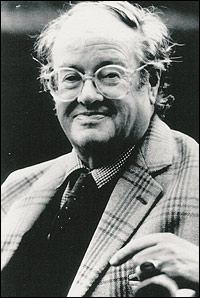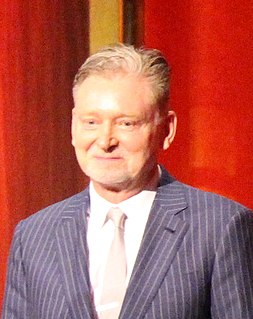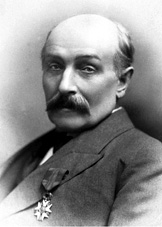A Quote by John Mortimer
What obsesses a writer starting out on a lifetime's work is the panic-stricken search for a voice of his own.
Related Quotes
Like Hemingway and Faulkner, but in an entirely different mode, Fitzgerald had that singular quality without which a writer is not really a writer at all, and that is a voice, a distinct and identifiable voice. This is really not the same thing as a style; a style can be emulated, a voice cannot, and the witty, rueful, elegaic voice gives his work its bright authenticity.
When we developed the 'Seinfeld' show, we took a bet on Jerry Seinfeld, who was not a household name. But Jerry had a voice. He was appearing on 'Late Night', on 'The Tonight Show', had some commercials out there, his voice of observational comedy, looking at the world around him, that voice was really starting to come into its own.
Whoever accepts the higher mission of art and comes nearer and nearer to it through his creative activity, will then go on from art to the Spirit deep within his own self... The philosophic search for enlightenment and the artist's search for perfection of work can meet and unite. Art can be a path to spiritual enlightenment but not to complete and lasting enlightenment. It can be born out of, and can give birth itself to, only Glimpses. For art is a search for beauty, which by itself is not enough. Beauty must be supported by virtue and both require wisdom to guide them.
Will’s voice dropped. “Everyone makes mistakes, Jem.” “Yes,” said Jem. “You just make more of them than most people.” “I —” “You hurt everyone,” said Jem. “Everyone whose life you touch.” “Not you,” Will whispered. “I hurt everyone but you. I never meant to hurt you.” Jem put his hands up, pressing his palms against his eyes. “Will —” “You can’t never forgive me,” Will said in disbelief, hearing the panic tinging his own voice. “I’d be —” “Alone?” Jem lowered his hand, but he was smiling now, crookedly. “And whose fault is that?






































